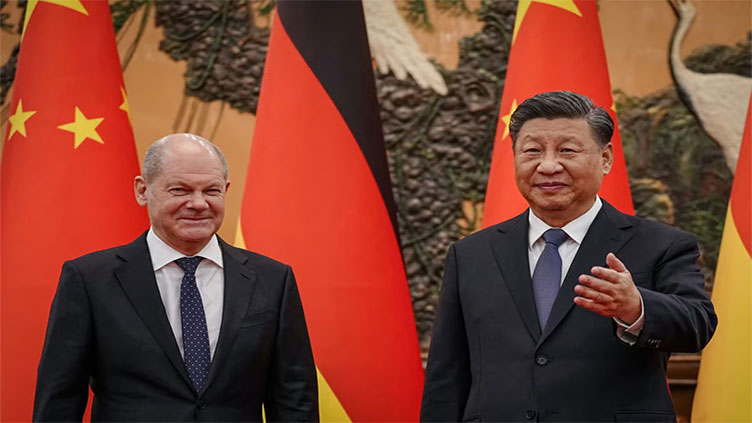China, Germany oppose any nuclear arms use in Ukraine war: Scholz

World
Germany and China are opposed to the use of any nuclear weapon in the Ukraine war.
BEIJING (AFP) - Germany and China are opposed to the use of any nuclear weapon in the Ukraine war, German Chancellor Olaf Scholz said on a visit to Beijing on Friday.
"Here in China everyone knows that an escalation (of the war in Ukraine) would have consequences for us all," Scholz told reporters.
"That is why it is very important for me to stress that everyone says clearly that an escalation via the use of a tactical nuclear weapon is ruled out," he added.
"I am pleased that we at least reached agreement on that."
Scholz said after talks with Chinese President Xi Jinping that he had insisted "the Russia war in Ukraine is a dangerous situation for the whole world".
He told Xi earlier that "it is important for China to use its influence on Russia".
"Russia must immediately stop the attacks under which the civilian population is suffering daily and withdraw from Ukraine," Scholz said.
he White House said this week that repeated discussion by Russian officials of the potential use of nuclear weapons in Ukraine has left Washington worried it could become a reality.
"We have grown increasingly concerned about the potential as these months have gone on," said White House national security spokesman John Kirby.
Russia s foreign ministry responded that the world s "top priority" should be to avoid a clash of nuclear powers "in the current difficult and turbulent situation".
Scholz is under pressure to push Beijing to get tough on Russia over the war in Ukraine, and he said Friday that Germany and China had agreed they both opposed any use of nuclear weapons in the conflict.
The German chancellor is the first G7 leader to visit China since the start of the coronavirus pandemic, which led the world s number two economy to close its borders and President Xi Jinping to largely eschew in-person diplomacy.
But his trip has prompted criticism at home over Berlin s growing economic reliance on Beijing, and sparked controversy for coming so soon after Xi strengthened his hold on power in China just last month.
Tensions are also running high between the West and Beijing on issues ranging from Taiwan to alleged human rights abuses.

